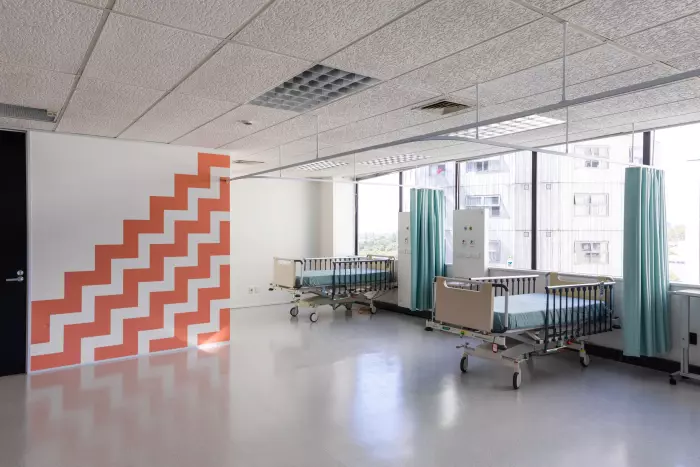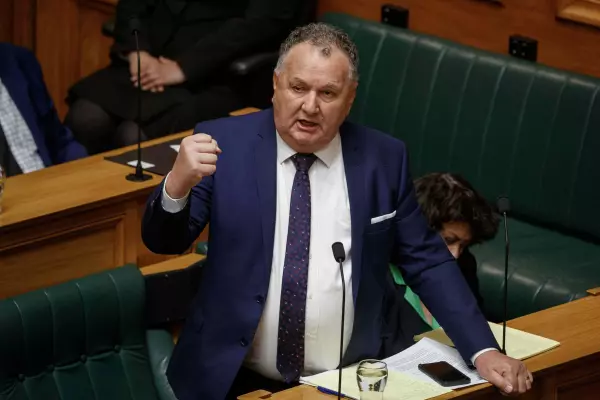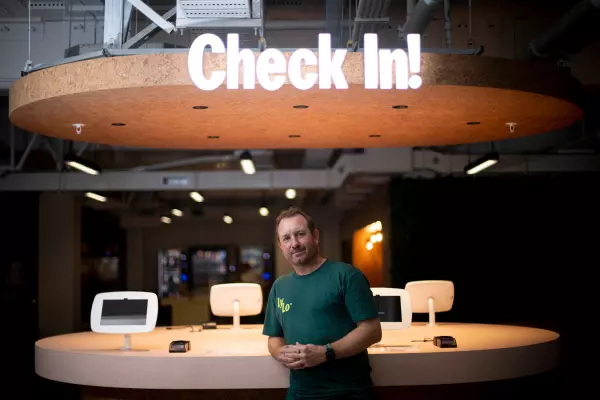A new nurse training facility in Auckland has been sitting empty since the end of last year, unable to open because of regulations on nurse training that were abolished long ago in Australia.
And despite leading a campaign to end what it says is a crisis in the nursing workforce, the New Zealand Nurses Organisation (NZNO) – the sector’s union – is opposed to UP Education’s Heathcare Academy of NZ getting government funding, preferring to wait for the government’s delayed mega polytechnic, Te Pūkenga, to start teaching in July.
"It doesn’t make any sense for a private university to provide training that we are trying to keep protected and supported," the NZNO’s professional services manager, Mairi Lucas, told BusinessDesk.
The merger of the country’s 16 polytechnics has run into a string of problems getting under way.
The NZNO said in a statement on April 12 that the country was short of between 4,000 and 5,000 nurses and "we want to see everything possible being done without delay".
However, that did not include allowing private education providers to "cherrypick" elements of nursing education, NZNO chief executive Paul Goulter said.
"Jamming in short-term solutions, in the long term, doesn’t work," he told BusinessDesk.
Under pressure from the health sector, immigration minister Michael Wood this week included enrolled nurses among an expanded "green list" of occupations that are in critically short supply in NZ.
Proven provider
UP Education already runs training courses for enrolled nurses in Australia, under the Acknowledge Education brand.
However, that is possible because Australia no longer has a regulatory requirement that nurse training establishments provide a bachelor of nursing degree before being allowed to train nurses at any level.
Ironically, nurses trained in those Australian courses have reciprocal rights to work in NZ, having received training that NZ nurses are not allowed to receive under the rules set by the sector’s regulator, the Nursing Council of NZ.
Ana Maria Rivera, chief executive of UP's Healthcare Academy of NZ, said it looked last year as if the nursing council had decided that the degree requirement was "redundant and outdated" and that it would likely abolish it by the end of 2022.
She accepted that UP had chosen to invest $1.5 million on its new Auckland facility without certainty of being able to open, claiming that as evidence that private providers were able to be "more nimble" than the public sector.
Some $370,000 of strategic funding from the Tertiary Education Commission (TEC) was secured to support the project and there was liaison on the course requirements with the NZ Qualifications Authority (NZQA).
Instead, however, a wider review of enrolled nursing was launched, with submissions due by the end of February.
Indications were that it could be "another 12 months" before any decisions were made on whether nurses could be trained at an institution that did not have a bachelor's degree course, Rivera said.
Patch protection
She feared that the review of enrolled nurse training requirements had become caught up in "patch protection" of Te Pūkenga and an ideological preference not to use private-sector providers.
UP Education’s track record in NZ shows it has substantially higher course completion rates than the former polytechs, particularly among Māori and Pasifika students, in research undertaken for UP by the NZ Institute of Economic Research.
UP liaised widely in the health sector, the Workforce Development Council for Community, Health, Education and Social Services, as well as TEC and NZQA, although not with the nurses’ union.
It also has agreements for practical training experience with private healthcare providers, including ABI Rehabilitation and MercyAscot hospitals.
Lucas claimed that the inability to find mentors for trainee nurses was one of the issues making the union unsupportive of using private training providers.
"Te Pūkenga has those relationships," she said. "We need money to get people on seats, no doubt. But why not give that money to organisations that are already approved, ready to go and can provide that training?"
Goulter said the NZNO also supported nurse training establishments being required to teach a bachelor's degree to ensure a "joined up education and training pathway" for progression through the nursing profession.
Rivera suggested that at least some of the union’s concerns related to salary differentials. Enrolled nurses, being less qualified and required to work under supervision of a registered nurse, earn less than their registered counterparts.
"Enrolled nurses aren’t seen as being as important. I think there’s a bit of bias in the nursing community."














